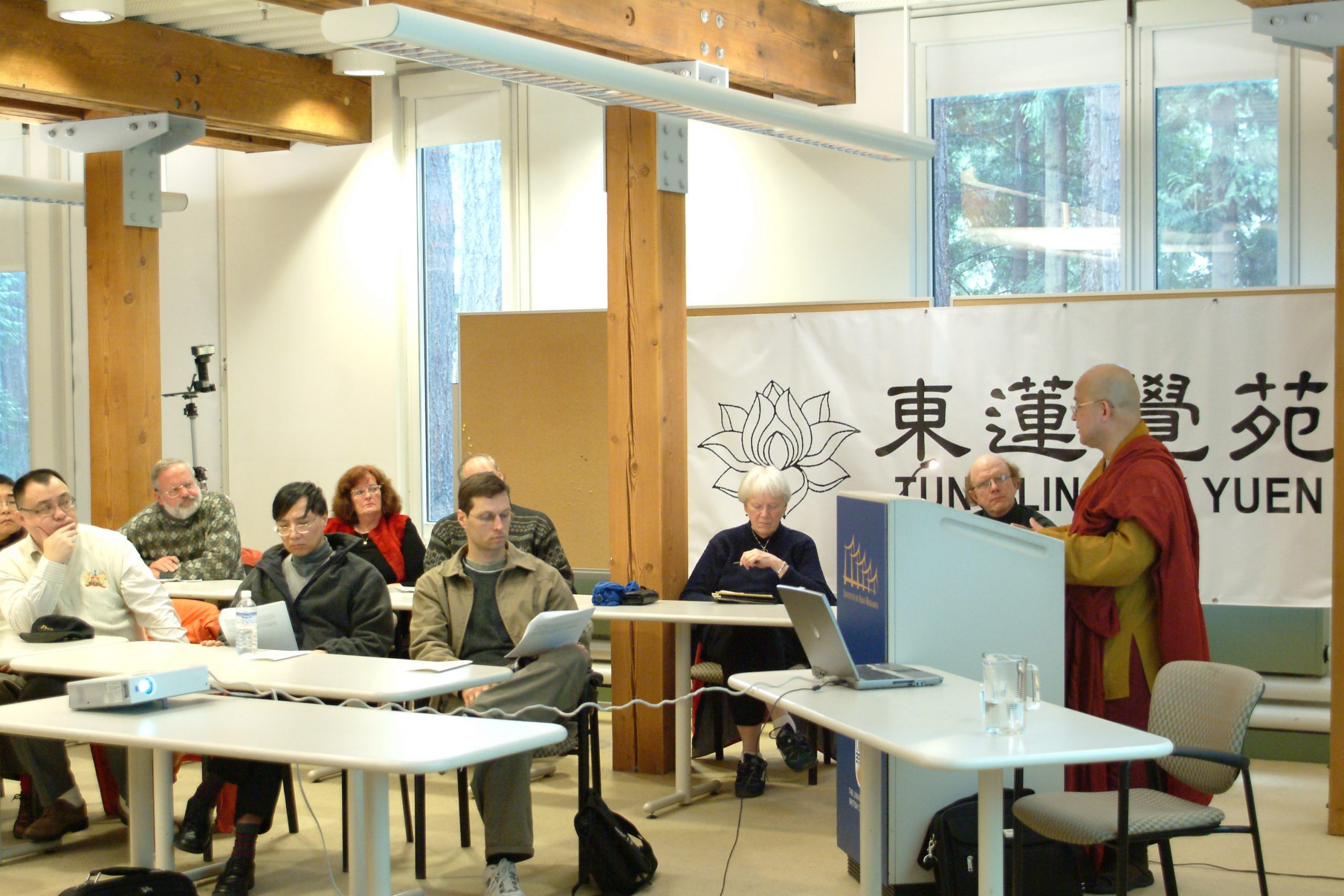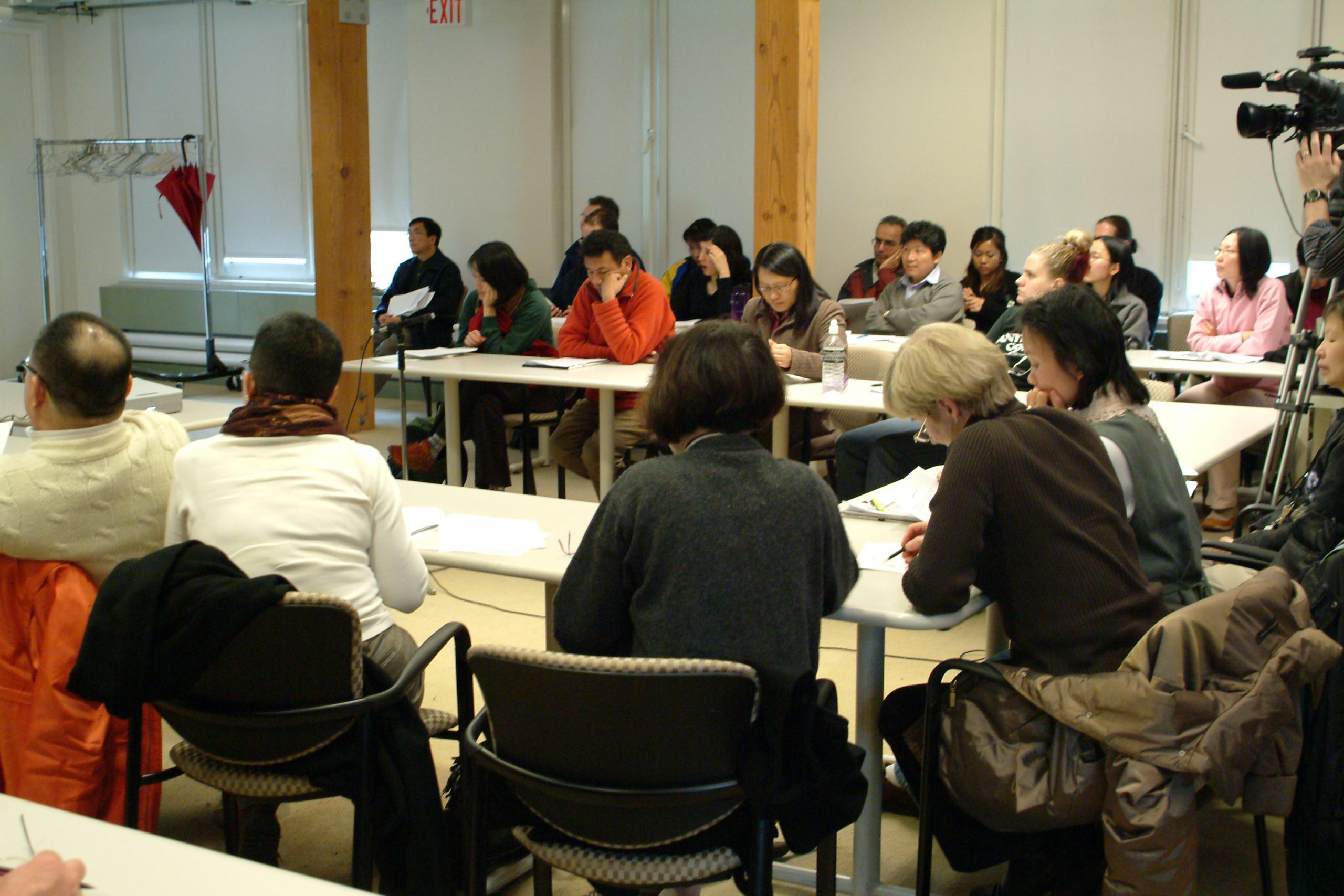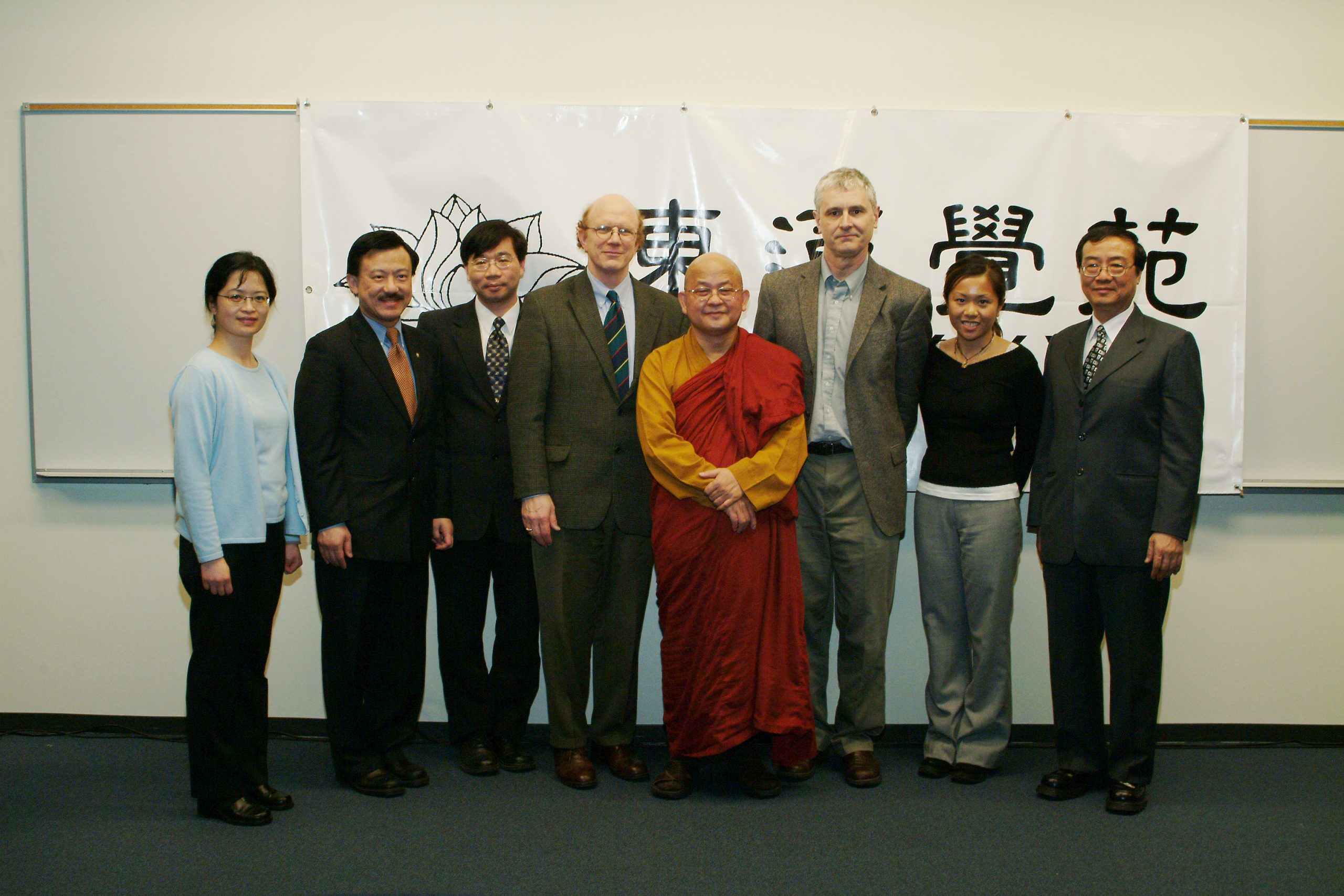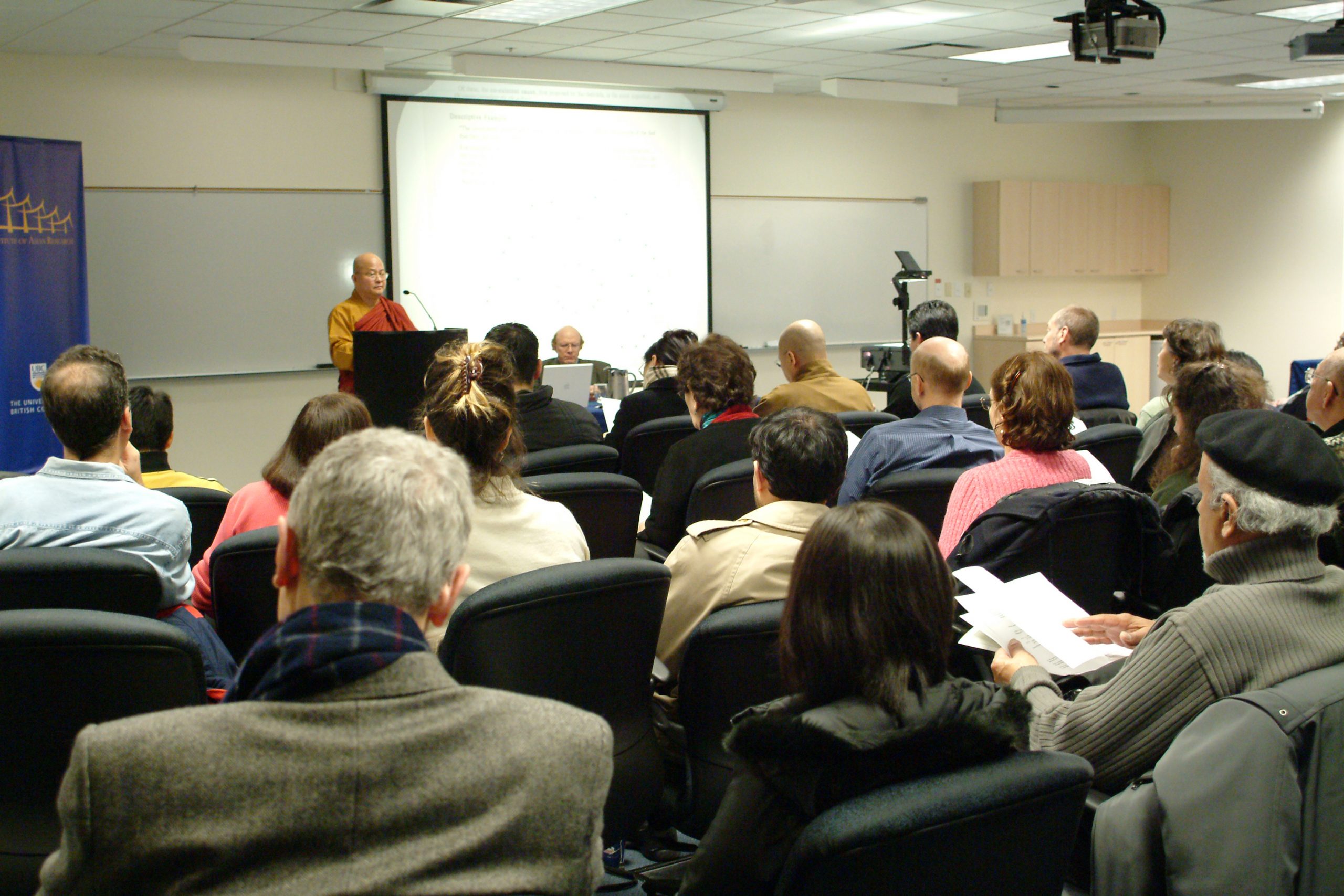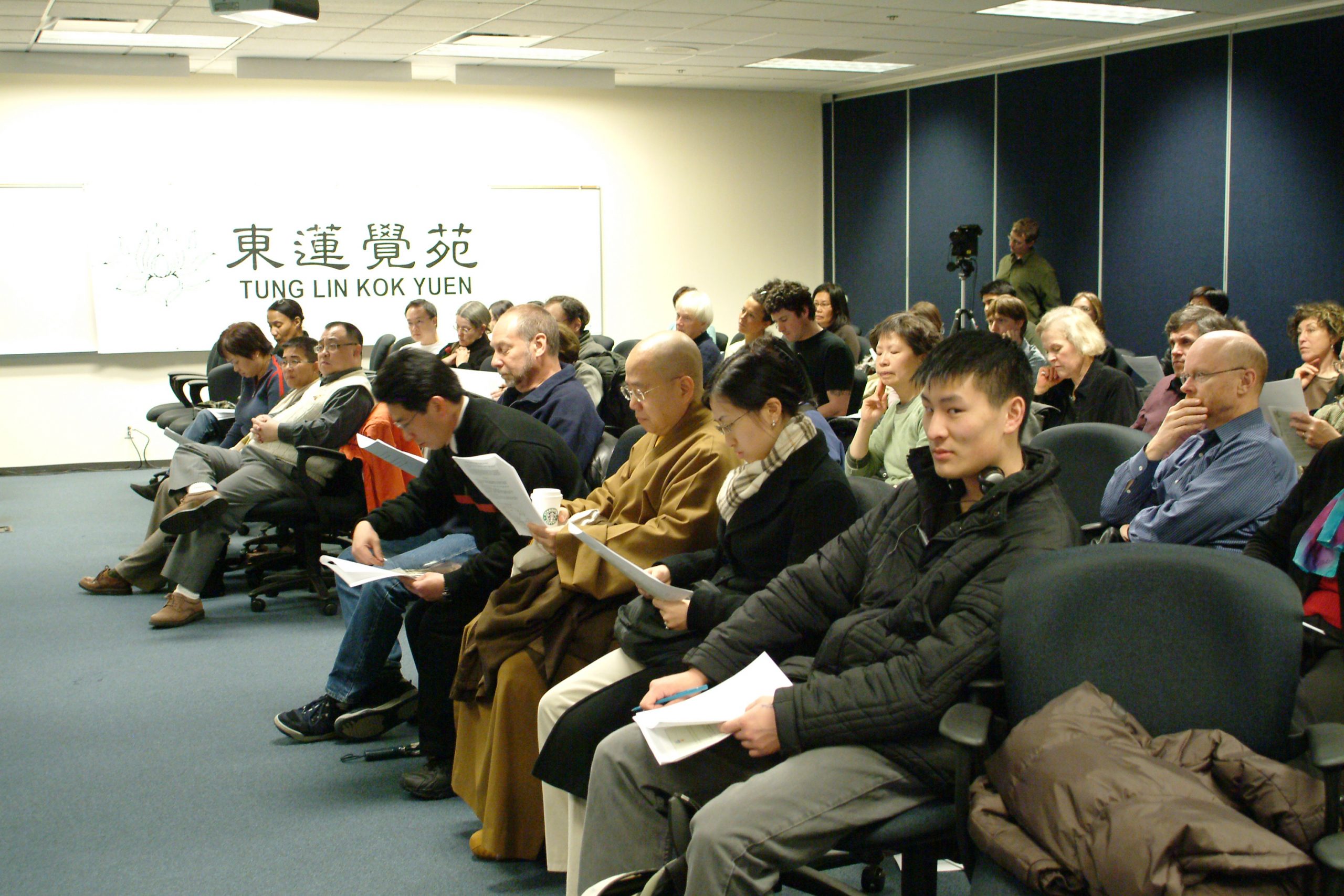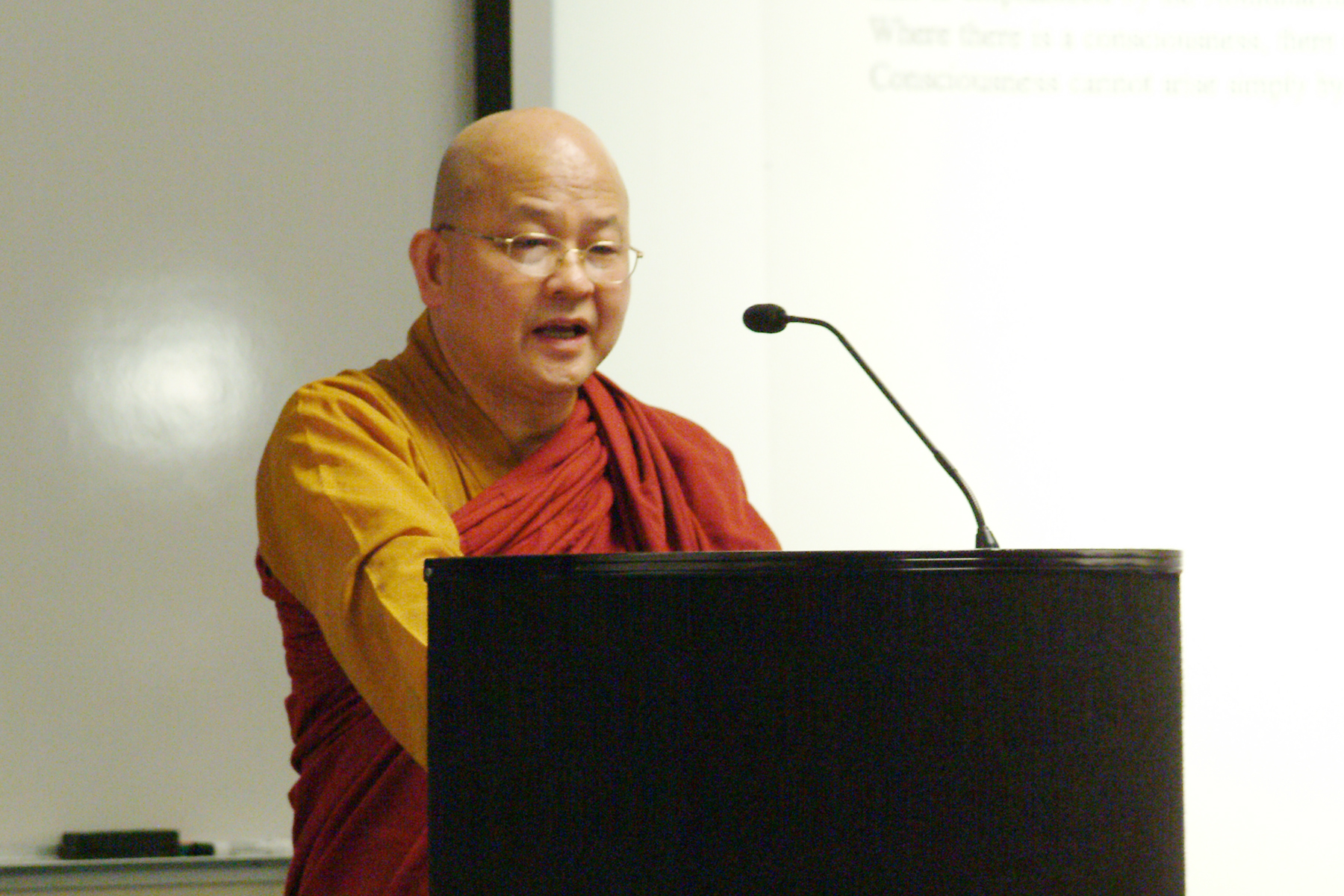“The Power of Rituals to Harm or to Heal”
Presented by Paula Arai, Assistant Professor of Religion, Asian Studies, Carleton College.
Date: Wednesday October 4, 2006
Time: 12:00 – 1:15 PM
Place: Institute of Asian Research, C.K. Choi Building Room 120, 1855 West Mall
Exploring the multi-valent dynamics of ritualized behavior illuminates the worldviews, moral orientations, and aims of a society, family, or individual. Rituals are a potent force in human interaction for they enact values as they draw upon their historical, cultural, political, and religious contexts. The capacity of rituals to resonate viscerally is the source of their power. East Asian civilizations share a ritual vocabulary and aesthetic that continuously transforms, yet connects current events and people to their larger historical and cultural milieu. Rituals give access to different modes of being and help to navigate the ever-changing relationships between the living and the dead––from public state rituals of honoring the war dead, to private ancestor rites of respect, to intimate expressions of gratitude for deceased family members recognized as “personal Buddhas”––by which each participant hopes to avoid harm and promote healing. My ethnographic study of contemporary Japanese Buddhist women focuses a lens on Buddhist assumptions of human nature and cosmology that are embedded in rituals practiced in their homes and communities. My theory of their Buddhist healing paradigm is based upon extensive field research that highlights the significance of understanding ritualized actions in contemporary society.
Continue reading “Public Lecture: Paul Arai on Ritual in Contemporary Japan”
“Asian Buddhism and Western Converts: Conflicts, Assimilations, and Beyond”
Presented by Dr. Reginald Ray, Professor, Naropa University, Boulder.
Date: Wednesday January 24, 2006
Time: 2:00 – 4:00 PM
Place: Institute of Asian Research, C.K. Choi Building Room 120, 1855 West Mall
One of the most interesting developments in recent times is the meeting of Asian Buddhism and Western culture. This lecture explores one dimension of this encounter, the coming together of Westerners interested in practicing Buddhism and Asian teachers seeking to transmit their tradition to the West. What does each bring to the table? How well has each group understood the other? How faithful to Asian tradition are the adaptations that are occurring in the West? In other words, to what extent has Buddhism in the West assimilated to the prevailing culture and to what extent does it represent a genuinely new form of spirituality in Western culture? Through exploring these and other questions, we will seek some perspective on some of the most important outcomes of this meeting of Asian Buddhism and the West.
Continue reading “Public Lecture: Reginald Ray on Asian Buddhist Teachers and Western Convert Students”
“Cut Flowers: Buddhist Education and Kokoro no Kyōiku (Heart/Mind Education) in Japan”
Presented by Dr. Stephen Covell, Director, Soga Center for Japanese Studies, Western Michigan University.
Date: Monday September 25, 2006
Time: 12:00 – 1:15 PM
Place: Institute of Asian Research, C.K. Choi Building Room 120, 1855 West Mall
Over the past two decades politicians, sectarian officials from many religions and the mass media have called into question the values of contemporary Japanese. At the same time, population growth in Japan has flattened out. In the education system this has led to converging needs: (a) the perceived need for enhanced morals education brought about by the sense that the school system no longer shapes the moral character of the youth; and (b) severe competition among schools requiring them to characterize what separates the educational experience they offer from that of other schools in order to attract the attention of students and parents. (a), the perceived moral decline, has led to increasing
calls for kokoro no kyoiku, something that can be roughly translated as education of the heart and mind. This call, in turn, has been answered by leaders in Buddhist education with claims to a natural calling for kokoro no kyoiku and increasing interest among sectarian and government officials for shukyo joso kyoiku, or education that cultivates religious sentiment. This paper examines these stances and the teachings of Buddhist educators in detail and explores specific examples of how Buddhist educators are participating in the broad national dialogue regarding morals and education by implementing kokoro no kyoiku and shukyo joso kyoiku in their schools. Continue reading “Public Lecture: Stephen Covell on Japanese Buddhism and Education”
Venerable Professor Dhammajoti presented two lectures at UBC:
March 15, 2006 – “The Sarvāstivāda Theory of Simultaneous Causality.”
Original post for the event HERE
March 16, 2006 – “Two Buddhist Theories of Knowledge.”
Original post for the event HERE
UBC Public Affairs | MEDIA RELEASE | FEBRUARY 2, 2006
The University of British Columbia has established North America’s first Buddhism and Contemporary Society Program thanks to a $4 million gift from The Tung Lin Kok Yuen Canada Foundation.
“We’re delighted by this generous gift, which will enable UBC to explore the application of Buddhist wisdom to today’s pressing global concerns through learning and research,”
says UBC President Martha Piper. UBC is a recognized leader in teaching and research on Asia with programs that date back seven decades and a large number of internationally renowned scholars. In recent years, UBC’s connections with the Asia Pacific region have expanded dramatically to include research linkages, faculty and student exchanges and joint programs. Continue reading “UBC Creates First North American Contemporary Buddhist Studies Program with $4 Million Gift”
“Two Buddhist Theories of Knowledge”
Presented by Venerable Professor Dhammajoti, Centre of Buddhist Studies, The University of Hong Kong.
Date: Thursday March 16, 2006
Time: 4:00 – 5:00 PM
Place: UBC Robson Square, C180-800 Robson Street
Buddhism teaches that we are trapped within the Cycle of Births and Deaths (samsara) on account of a fundamental error of cognition. Accordingly, throughout the history of Buddhism, the major doctrinal concern had consistently been the understanding of the cognitive process. This lecture discusses two major theories of knowledge developed in the period of Abhidharma Buddhism: the theory of Presentational Perception of the Vaibhasika school and the theory of Representational Perception of the Sautrantika school. Continue reading “Public Lecture: Ven. Dhammajoti on Buddhism and the Cognitive Process”
“Is Mind a Reality?”
Presented by Dr. Jing Yin, Director, Centre of Buddhist Studies, The University of Hong Kong.
Date: Wednesday September 28, 2005
Time: 4:00 – 5:30 PM
Place: C.K. Choi Building Room 120, 1855 West Mall
The Buddha’s teachings reveal the root causes of human suffering and unhappiness, and challenge us to transform our minds. Dr. Jing Yin offers his insights on the power of the mind and how to turn negative thoughts into positive ones. He will answer questions following his presentation.
Dr. Jing Yin is a Buddhist monk and scholar. Continue reading “Lecture: Jing Yin on the Nature, Power, and Effect of Mind”
